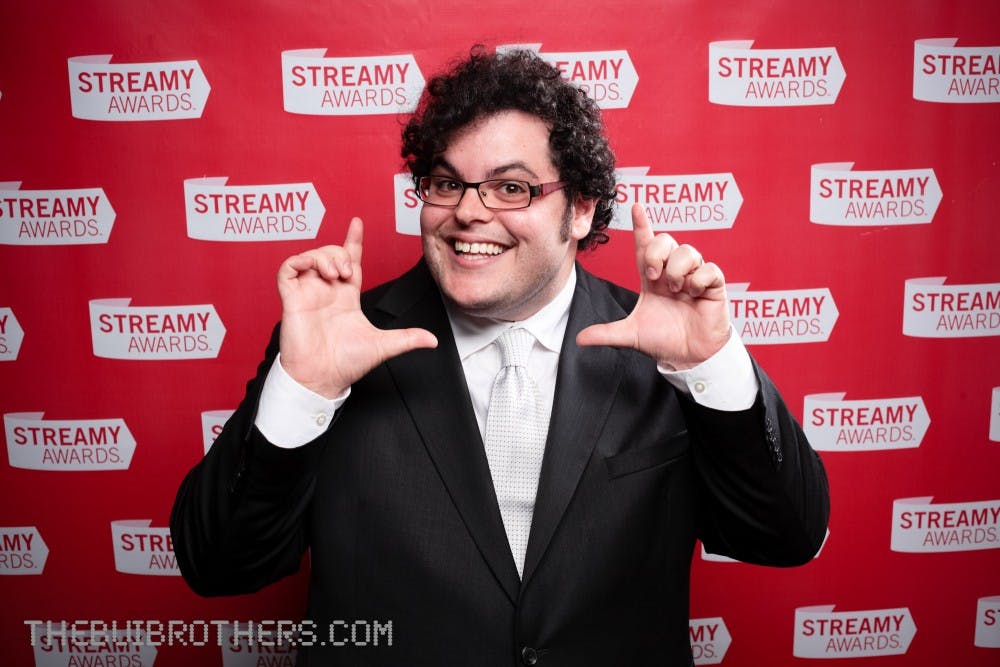In the recent adaptation of “Beauty and the Beast,” we got our first canonically gay character in a Disney film. And despite the negative discourse about LeFou’s characterization, it’s great to see such a huge corporation with such a dodgy past taking steps in the direction of diversity.
We also saw an unnamed, apparently male character who seemed pleased to be wearing a dress after an attack from Belle’s horrifically faceless, opera-singing wardrobe. And that’s great. But at the end of the film there was a glimpse of this character dancing with LeFou, which is not so great, because gender and sexuality should not be equated like that.
I’m not here to criticize Disney (not that I think Disney especially cares what I have to say), but I am here to share a little bit about how my identity as a gay man has been constantly attacked and dogged by negative stereotypes about masculinity.
Fighting toxic masculinity is familiar to people from a wide range of gender identities and sexualities, and it’s not something that any one group can overcome alone. It often enforces gender roles of male dominance, and I can only begin to imagine how it affects someone who is questioning their gender identity.
I’m gay, and my struggle against masculinity has been a bit more straightforward (pun intended). In a lot of ways, being gay is great. I’m proud and a little blessed to be pretty much universally out, and my sexuality is a large part of my identity.
And yet growing up in Texas while beginning to question my sexuality was decidedly not great. I’ve been harassed for what others perceived as effeminate characteristics since before I properly understood the difference between a man and a woman.
Honestly, I’m not quite sure why everyone who knew me was so certain I was gay when I was six years old, though I can certainly imagine why they reacted negatively because of that perception. I don’t consider myself particularly effeminate, although I’ve always had a penchant for theatrics and loved calling attention to myself in elementary and middle school.
But the fact remains that I don’t have many close male friends because, since elementary school, I was ostracized by the boys for being gay (years before I came to that realization myself, I might add). When I started getting crushes on boys in middle school, I responded negatively, the way I’d been conditioned to by everyone around me.
I remember going to ridiculous lengths to prove to myself and others that I wasn’t gay. I dated actual females, purposefully let my classmates catch me doodling naked women and, worst of all, genuinely tried to police my behavior to behave in a manner I deemed more manly.
And then, in eighth grade, something happened that delayed my coming out process by two or three years: I kissed a boy.
After that I was so consumed with anxiety that I wouldn’t be “man enough” and worry that the friends I’d made would reject me that I bottled up all my gayness and buried it somewhere deep down inside me. After that, I went through years of fear and insecurity about my masculinity and my sexuality, which I perceived to be inevitably linked.
I think it’s important here to distinguish homophobia and toxic masculinity as they’ve impacted my life. Since coming out, I haven’t experienced much homophobia in the same form.
I know now that what I went through before coming out was because I’d been forced to conform to this idea of masculinity even though it didn’t reflect who I was, and when I didn’t fit in with that mold I was only further distanced from the other boys.
We have got to stop enforcing masculinity on men and boys because it was that fear of not fitting in with social standards of manhood that made it so difficult for me to accept my sexuality.
I’m still fighting against standards of masculinity, despite generally considering myself to be masculine. Why is it that I should feel any differently about painting my nails? Why was getting “Queen Nicki” (referring to The Queen Nicki Minaj) on my senior shirt such a big deal?
The difference between me now and me from three years ago is that today I understand the difference between sexuality and gender, and I know that expectations about my masculinity should not curb expressions of my sexuality.
Knowing Disney had confirmed LeFou to be their first gay character, I was horrified that I was going to see the queenie, over-the-top comic relief that has become ubiquitous with gay representation (thanks, “Mean Girls”).
Instead, what I got was a nuanced character who was still funny but not at the expense of his sexuality. While he was by no means perfect, LeFou represents the start of real mainstream diversity, not gay representation designed by and for straight people.

















